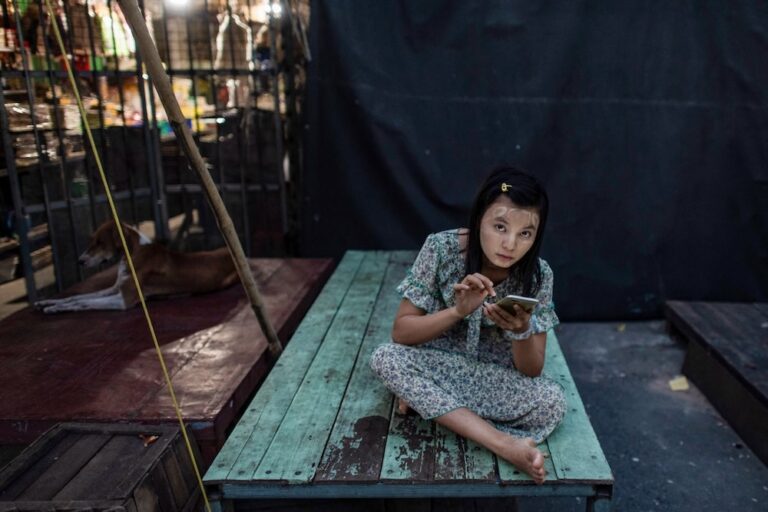ARTICLE 19 expresses concern over recent attempts by local police to arrest three well known rights defenders on the grounds that they were "insulting" or "defaming" the reputation of the police just by turning up near a controversial copper mining project.
For a while now, ARTICLE 19’s position on Myanmar has been that the government is turning a blind eye to people trying to exercise their rights, while doing very little legislatively.
The steady flow of multinational companies and ministers demonstrates that the international community is intentionally or otherwise being hoodwinked by the clear and significant visible changes in Yangon, and forgetting about the deep need for institutional reform.
Recent attempts by local police to arrest three well known and well regarded human rights defenders on the grounds that they were “insulting” or “defaming” the reputation of the police just by turning up near a coppermine is a case in point.
Clearly nobody has told these local police that the country is changing.
But maybe if the government actually changed the laws – in this case the penal code – and the institutions – the police – rather than just turning a blind eye, the local police would no longer have the “freedom” to do as they please.
This “freedom” that they have has led some to claim that the number of political prisoners is now beginning to increase due to more not less political interference in the judicial process.
But don’t just take it from ARTICLE 19, the three human rights defenders have written it themselves, with the help of the excellent Burma Partnership:
STATEMENT BY THREE HUMAN RIGHTS DEFENDERS: MOE THWAY, WAI LU AND WAI HMUU THWIN
We would like to explain what is happening to us, Moe Thway (Generation Wave), Wai Lu and Wai Hmuu Thwin (Yangon People Service Network), in these days.
On 13 June 2013, Monywa court issued warrants to arrest the three of us under section 505(b) of the Penal Code. Lieutenant Khin Zaw Latt from Monywa Police Station 1 said he requested Monywa court to charge us with section 505(b) because of our comments about the Letpadaung copper mine case.
On 25 April 2013, there was some violence between local police and villagers in the Letpadaung copper mine project area when villagers tried to plough their fields, which are in an area that they were prohibited to enter under section 144 of the Penal Code. Local police arrested an activist and two villagers and also issued a warrant for 8 other activists and villagers. As the consequences of that case, villagers were afraid of police raids on their villages and the possibility of more violence.
Because of that situation, we were worried that there would be more conflicts between local authorities and people. So we four activists, Aung Thu (88 Generation), Moe Thway (Generation Wave), Wai Lu and Wai Hmuu Thwin (Yangon People Service Network), went to Monywa and Letpadaung villages on 8 May 2013 to try to calm down the tensions in that area. We informed to the local police, administration and also government, that we were coming to find a compromise and peaceful way to resolve the problems.
During that trip, we met and consulted with people from several villages surrounding the Letpadaung project and brought their requests to local authorities. We sent the information we got from local people to the Prime Minister of Sagaing Region, U Tha Aye, and also to the chairman of Letpadaung mining project implementation committee, U Hla Tun, and two ministers of the President Office, U Aung Min and U Ohn Myint. We requested to meet Sagaing Region government, but we didn’t get the chance to meet the Prime Minister of Sagaing Region although we waited for 5 days from 8 to 12 May 2013. One of us, Wai Lu had a chance to meet U Aung Min, Minister of the President Office, to report about the situation in Yangon on 12 May 2013.
While we were in Monywa, we were asked for an interview by some local reporters. We had an interview with them at a tea shop named Pin Lone. Some police from the Special Branch were nearby and closely watched our interview. One reporter shot a video recording while we were answering questions. We spoke out our opinions of local police using section 144 of the Penal Code to keep villagers from entering their fields and prohibited areas near the mining project.
Unfortunately, Sagaing Region police force felt that our comments and opinions in the interview damaged the police and the government’s credibility. So they proposed the court to arrest us and charge us under section 505(b) of the Penal Code, which carries a possible sentence of 2 years imprisonment.
We are being charged for giving an interview to media and expressing our opinions about police actions in a civil rights movement case. The government is telling the world that there is freedom of expression and is getting so much appreciation. But this warrant is an attack on our right to freedom of expression and is destroying Myanmar’s democratic transition.
We call on the government, the police and all authorities to ensure freedom of expression for all people of Myanmar as an important step on our path towards democracy.


